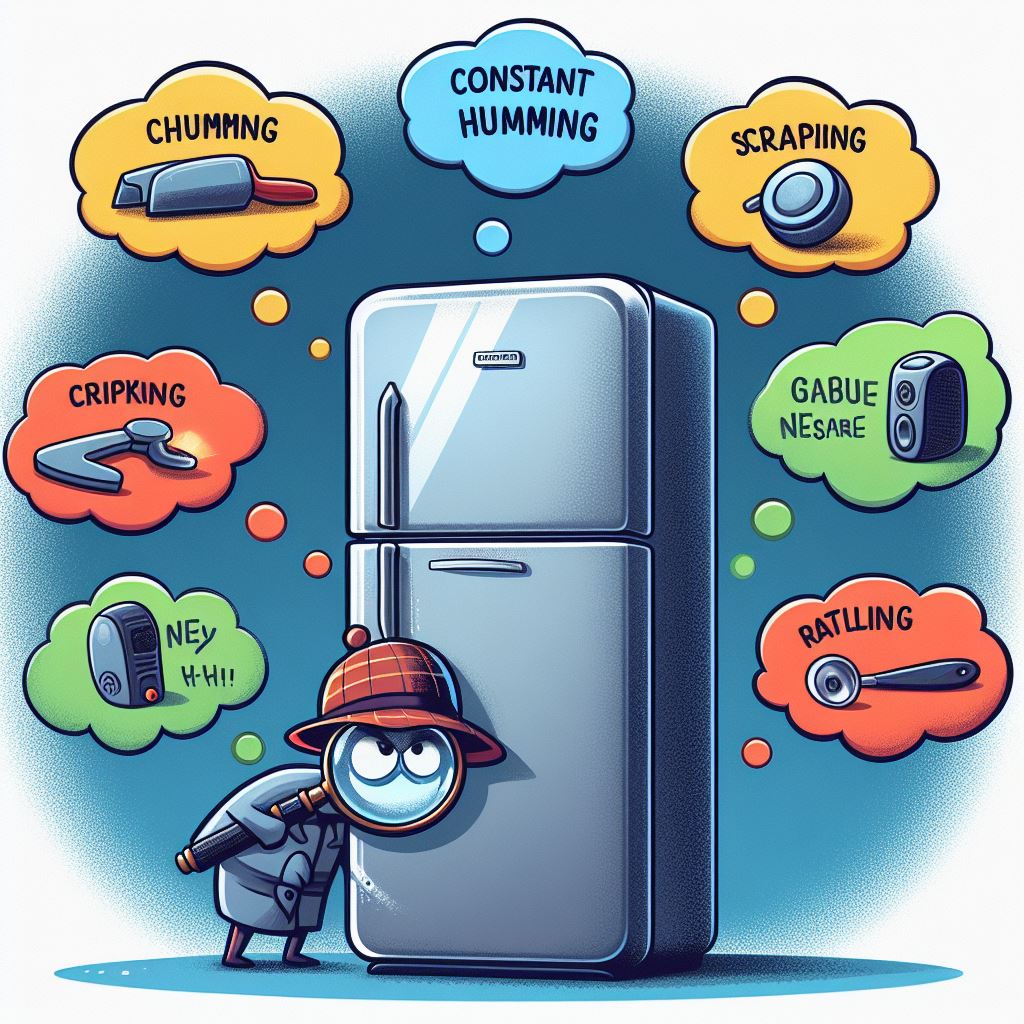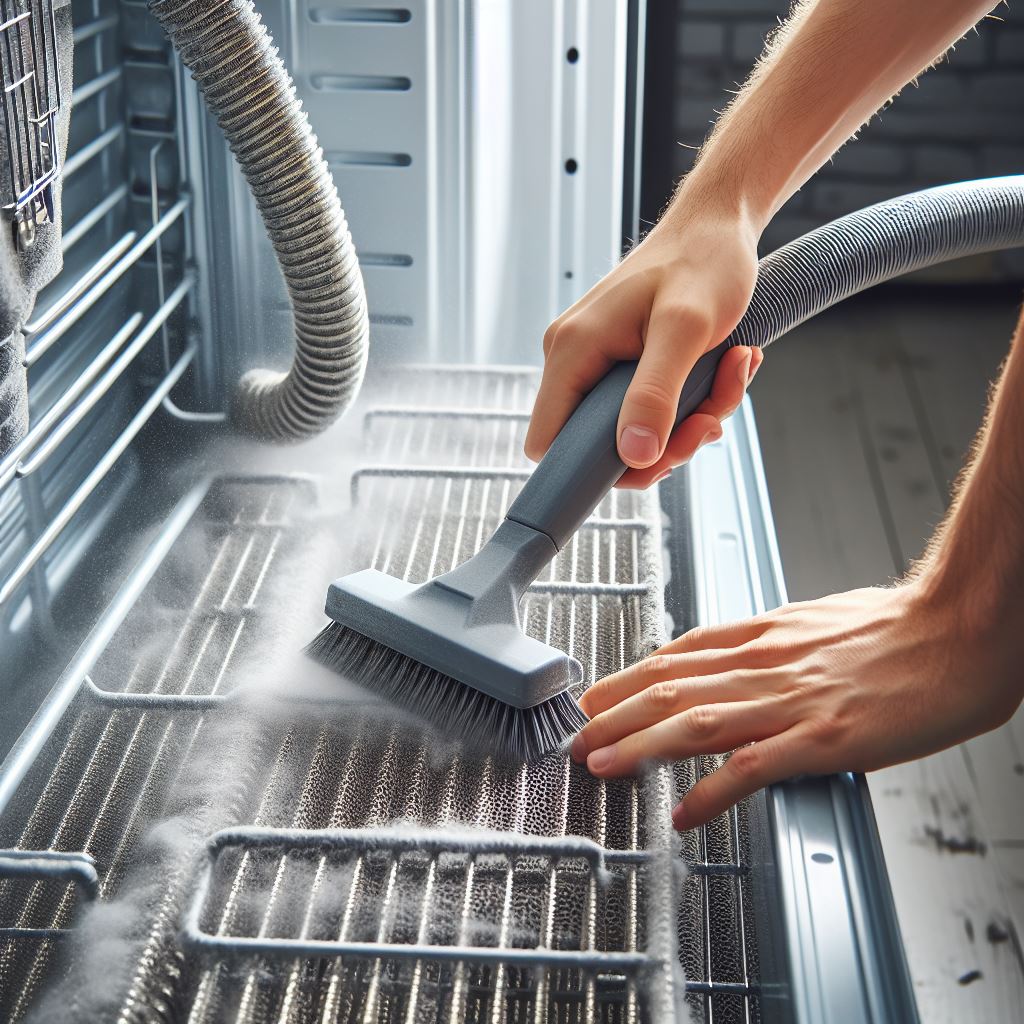Here at Wine Fridge Hub, we understand how frustrating a noisy fridge can be! It can disrupt your peace and quiet at home. But don't worry! By following these simple maintenance tips, you can significantly reduce noise levels and keep your kitchen a haven of tranquillity. If you're specifically looking for a fridge known for quiet operation, be sure to explore our selection of Quiet Fridges.
Understanding Fridge Noise
Before diving into maintenance, let's understand some common culprits behind fridge noise:
- The Compressor: This is the heart of your fridge, responsible for circulating cool air. A failing compressor can create a loud humming or knocking sound.
- Fans: Condenser and evaporator fans help maintain airflow within the fridge. Worn-out fan blades can become loose or unbalanced, causing rattling noises.
- Loose Components: Over time, vibrations can loosen parts inside your fridge, leading to banging or rattling sounds.
To learn more about the different types of fridges and their noise levels, visit our Quiet Fridges page
Diagnose Your Fridge Noise
Many fridge noises are common and can be addressed with a little troubleshooting. But before we jump into solutions, let's identify the exact culprit behind the racket.

Here are some common fridge noises and what they might indicate:
- Constant Humming: This could be a sign of a hardworking compressor struggling due to dirty condenser coils, improper loading, or excessively cold temperatures.
- Clicking: This can be caused by a loose component within the fridge, the compressor cycling on and off, or even ice dispenser malfunctions (if your fridge has one).
- Scraping or Grinding: This often indicates worn-out fan blades or a failing compressor, and might require professional attention.
- Rattling: This could be due to loose components inside the fridge, an unevenly placed fridge, or even items within the fridge that aren't properly secured.
Listen Up! Take a moment to listen closely to the specific noise your fridge is making. Is it constant or intermittent? Does it come from a specific location? Noting these details will help us pinpoint the problem and find the most effective solution.
Now that you've identified the general sound, keep reading for how to keep your fridge quiet and your kitchen a peaceful haven!
Easy Maintenance Techniques
Now that we know the culprits, let's fight back! Here are some simple maintenance steps you can perform to quieten your fridge:
1. Clean the Condenser Coils
Dust buildup on these coils (located at the back of your fridge) restricts airflow and forces the compressor to work harder. This translates to more noise and less efficiency.

- How-to: Unplug your fridge and gently vacuum the dust from the condenser coils with a soft brush attachment.
2. Maintain Proper Fridge Loading
Believe it or not, how you pack your fridge can impact noise levels. Overstuffing restricts airflow, making the compressor work harder and potentially leading to louder operation. This is especially important for smaller fridges, which can get overloaded more easily. If you have limited space and require a quiet solution, explore our selection of Small Quiet Fridges.
- Top Tip: Leave some space between groceries to allow cool air to circulate freely.
3. Find the Temperature Sweet Spot
Keeping your fridge excessively cold puts unnecessary strain on the compressor, resulting in higher noise levels. Consult your user manual for the recommended temperature range for your specific model. Generally, a setting between 3°C and 5°C (37°F and 41°F) is sufficient for most food and helps keep things quiet.
4. Ensure Level Fridge Placement
An unevenly placed fridge can cause the door to not seal properly, forcing the compressor to work harder and potentially leading to strange noises.
- How-to: Use a spirit level to check if your fridge is level. If not, adjust the levelling feet at the front of the fridge until it sits evenly.
Troubleshooting and Next Steps
If you've followed these steps and your fridge is still noisy, it might be time for some troubleshooting:
- Identifying the Noise Source: Pay attention to the location and characteristics of the noise (e.g., a constant hum, a clicking sound). This can help pinpoint the culprit.
- Checking for Loose Parts: Inside the fridge, gently tighten any screws or components that seem loose. Refer to your user manual for specific locations of components in your model.
Important Note: While these tips can address some common issues, for significant repairs or if you're unsure about the source of the noise, it's always best to consult a qualified appliance repair professional.
Keeping Your Fridge Quiet

By incorporating these maintenance practices into your routine, you can create a quieter and more efficient fridge environment. This not only improves your kitchen experience but also helps extend the lifespan of your fridge, saving you money in the long run.
Remember, we're always here to help! If you have any questions or need further advice on fridge maintenance or noise reduction, feel free to contact us.